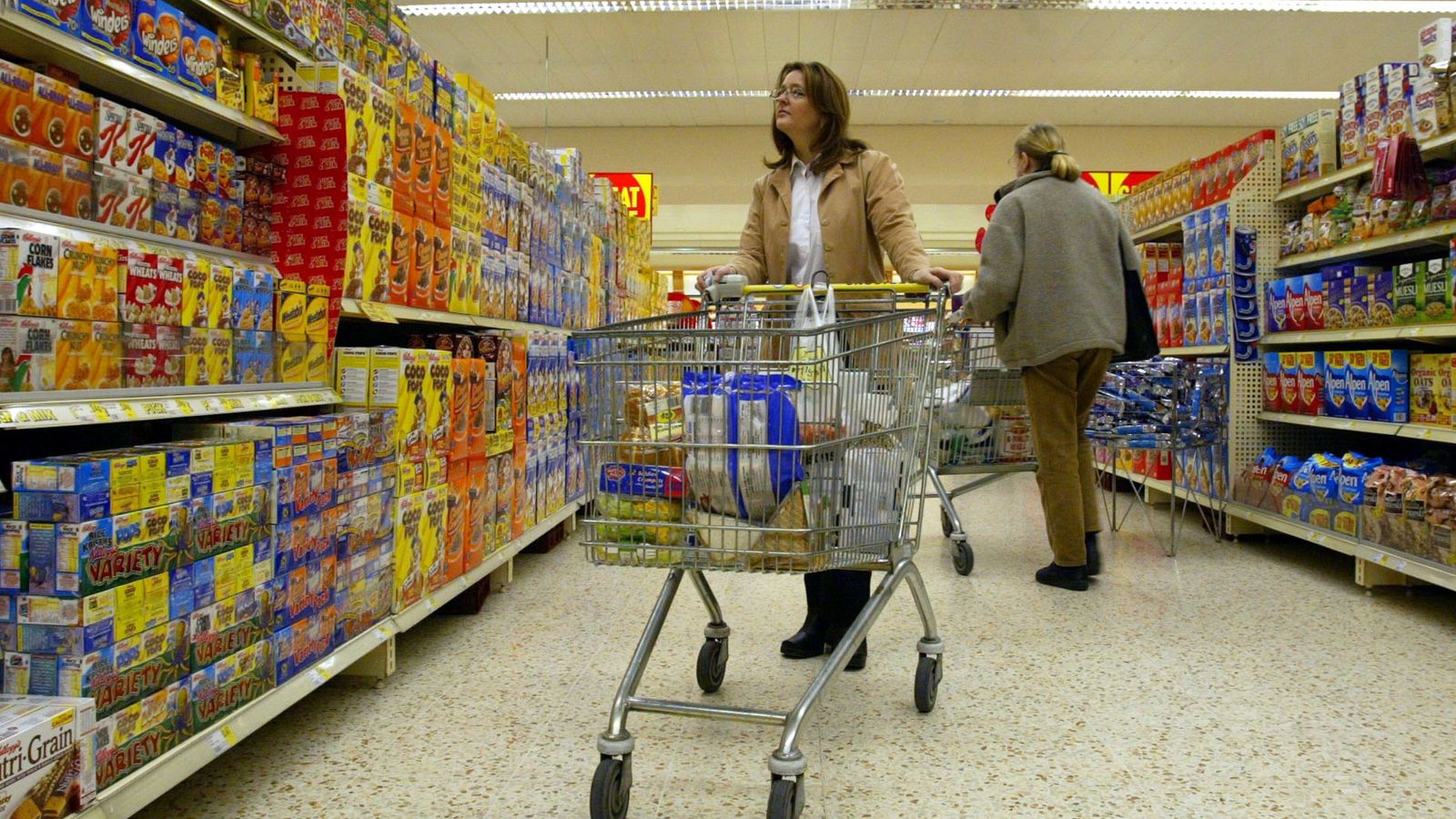UK grocery inflation continued to climb during February to reach a new record high of 17.1%, according to closely-watched industry data.
Kantar Worldpanel reported that the increase over the past 12 months meant that families faced a potential £811 annual rise in the cost of their regular shopping basket.
It had been hoped that a decline in the pace of grocery prices during December would mark a turning point in that element of the cost of living crisis.
But Kantar later revealed that temporary Christmas discounting had been largely responsible, as the big four chains fight to maintain market share amid the challenge posed by discounters and other cheaper rivals.
Its latest report showed that while all of the major stores, with the exception of Morrisons, had expanded sales during the 12 weeks to 19 February, Aldi, Lidl and Iceland had grown their market shares at their expense.
The lure of cheaper own-label groceries saw Aldi achieve a record market share of 9.4% over the period, Kantar said.
Tesco, Sainsbury’s, Asda and Morrisons have expanded their own value offerings given the shift in consumer behaviour driven by the wider cost of living crisis.
Food, along with the cost of many other everyday products, has become more expensive largely due to the surge in energy prices seen since the Russian invasion of Ukraine.
The war can also be blamed for many commodity costs, such as wheat, rising markedly.
While the main rate of inflation has eased from its 11.1% peak seen in October last year, food and other grocery costs have been a major factor behind the CPI measure remaining stubbornly above 10%.
Unilever, which is behind a host of everyday products including Marmite and Magnum ice creams, has been among manufacturers warning that price increases are yet to end.
Producers – just one element of a complicated supply chain – are still grappling rising energy bills and other costs.
It also remains to be seen whether the shortage of salad items, which has forced most supermarkets to limit sales, will become a significant inflationary headwind ahead.
Kantar said that the issue came outside of its reporting window but that it expected to reveal a hit when its next report is published.
Its head of retail and consumer insight, Fraser McKevitt, said: “Shoppers have been facing sustained price rises for some time now and this February marks a full year since monthly grocery inflation climbed above 4%.
“This is having a big impact on people’s lives.
“Our latest research shows that grocery price inflation is the second most important financial issue for the public behind energy costs, with two-thirds of people concerned by food and drink prices, above public sector strikes and climate change.
“One quarter say they’re struggling financially, versus one in five this time last year.
“The numbers speak for themselves.”

